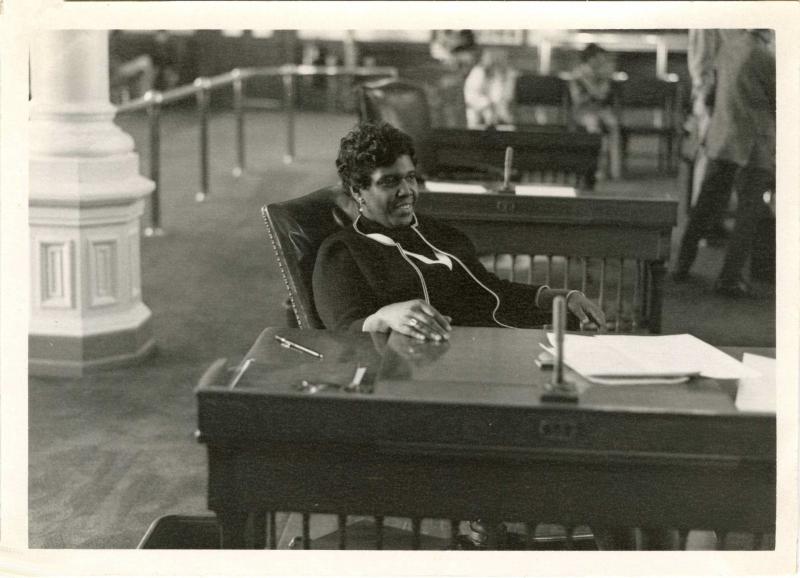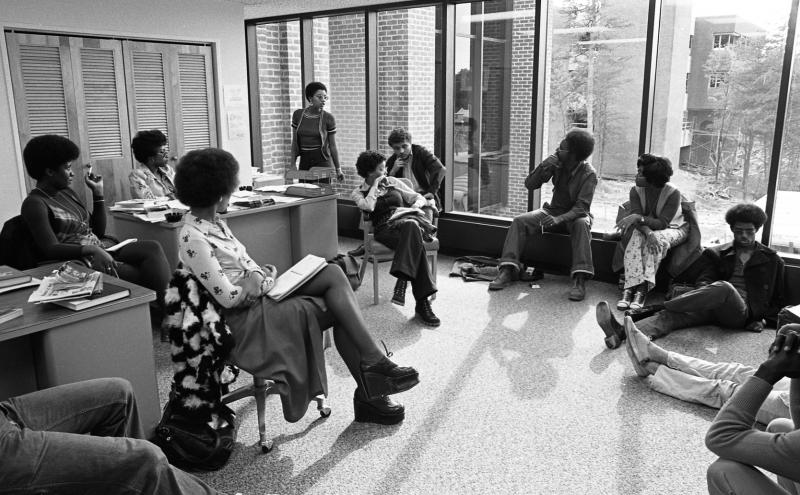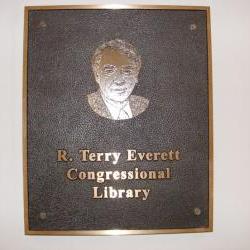- About Archives
- About SAA
- Careers
- Education
- Publications
- Advocacy
- Membership
With this long winter finally behind us the College and University Section is looking forward to embarking on a new initiative for 2014. At last year’s annual meeting we discussed several topics of interest among the section. A few of these generated some lively discussion but there seemed to be quite a bit of interest from the group surrounding a mentorship program for those of us, tenure track or not, who are looking for advice on how to publish, where to publish, scholarship opportunities, career development, and the tenure process. In order to tackle this issue we have established a task force led by Jordon Steele, who serves on C&U’s Steering Committee. Members of the section wishing to participate in this task force should contact Jordon. We are looking forward to bringing you more information about this initiative as it develops.
Section leadership endorsed one session that made it onto the program for the annual meeting in Washington, D.C. - Session 501:
Taken for Granted: How Term Positions Affect New Professionals and the Repositories that Employ Them, which addresses term, temporary, and project positions and the roles they play in the archival labor market. The session is schedule for Friday, August 15 from 2:45 PM - 3:45 PM.
 Texas Southern University Receives Grant to Digitize Photos from Barbara Jordan Papers
Texas Southern University Receives Grant to Digitize Photos from Barbara Jordan PapersThe Robert J. Terry Library at Texas Southern University recently received a $2000 grant from the University of North Texas Libraries to have approximately 250 photographs digitized from the Barbara Jordan Papers. The photographs, many of which have been rarely seen for decades, document Jordan’s time in the Texas Senate from 1966-1972 and will be housed and made accessible through the Portal to Texas History. The pilot project may eventually lead to the digitization of the entire Jordan Papers. Archivist Gary Chaffee reports that "we are very excited to be partnering with UNT Libraries and appreciate the opportunity to provide greater access to this important African American political figure’s collection"
Submitted by Gary J. Chaffee, Archivist, Barbara Jordan Archives and Special Collections, Robert J. Terry Library, Texas Southern University.
Digitizing Video for Long-Term Preservation was a multi-institutional endeavor developed over the course of three years with the guidance and recommendations of video engineers, vendors and other professionals and stakeholders in the field of media preservation. It is intended to take an institution step-by-step through the process of drafting a Request for Proposals (RFP) for the transfer of analog video -- specifically VHS -- to digital carriers for preservation. This template can be used by libraries, archives, and other cultural heritage institutions and submitted to qualified transfer vendors. The resource is now avaiable as a PDF.
Funded by The Andrew W. Mellon Foundation, the Digitizing Video for Long-Term Preservation publication is part of the Video at Risk project undertaken by New York University and two partner institutions, Loyola University New Orleans and the University of California, Berkeley. The authors of this publication set out to create a template that would identify the key elements integral to the transfer of the video and audio signal from Standard Definition VHS to a preservation-quality digital file.
Many cultural institutions large and small have never contracted with a vendor for digitization of analog video and are unacquainted with the technical specifications needed to produce preservation-quality masters. Digitizing Video for Long-Term Preservation provides the technical specifications needed to produce preservation-quality digital files from VHS analog tapes. It is meant to guide a novice through the process of creating an RFP that will result in the creation of a vendor-produced preservation-quality copy of an analog VHS tape. As part of the process of long-term preservation, three copies are created: a digital master file, a mezzanine copy (if needed), a use or access copy, and the necessary metadata that must accompany each transfer.
Digitizing Video for Long-Term Preservation is organized and arranged in sections for ease of use. Within each section of the RFP template, there is an explanation of what specific information should be included for the vendor. A sample completed RFP is included in an appendix to demonstrate the use of the template. Where possible, every attempt has been made to describe processes and procedures in terms a non-technical person can understand and follow. Highly technical details have been omitted but references and links to more information are available should the reader wish to pursue them.
Submitted by Paula De Stefano, Head, Preservation Department, NYU.

In Fall 2013, George Mason University Libraries' Special Collections & Archives received a generous grant from the Mason Auxiliary Enterprise Management Council (AEMC) that funds new scanning equipment and two undergraduate students to create digital surrogates and item-level metadata for the 35mm negative series from the George Mason University Broadside photograph collection. By repurposing finding aid metadata, this project will make accessible in a timely fashion over 10,000 original images of Mason people and events captured by Broadside student newspaper staff. The images range from the early 1970s, when Mason became an independent university, to the early 2000s, when newspaper staff adopted digital photography. This project will add to knowledge of Mason history and provide rich content for the George Mason University: A History website.
Submitted by Jordan Patty, Processing Archivist/Librarian, Special Collections & Archives, George Mason University.
 The Wiregrass Archives Opens the R. Terry Everett Congressional Library
The Wiregrass Archives Opens the R. Terry Everett Congressional LibraryIn 1999, Congressman Terry Everett (AL-2, 1993-2009) donated his congressional office records to Troy University Dothan (Alabama) Campus, leading to the opening of the Wiregrass Archives there in 2002. The Everett Congressional Collection finding aid is available online. Mr. Everett and his wife, Barbara, made a significant financial contribution toward the Wiregrass Archives’s physical plant in 2010.
To celebrate these gifts and provide access to Mr. Everett’s congressional collection, the Wiregrass Archives held a grand opening on November 22, 2013. It also opened the R. Terry Everett Congressional Library to draw research attention to topics important to Mr. Everett’s congressional career and his southeast Alabama constituents: agriculture, military affairs, veterans’ affairs, and national security. Images of the facility and opening ceremony are via Pinterest.
To see what else the Wiregrass Archives has to offer, visit their website, like their Facebook page, or follow them on Twitter at @WiregrassArchiv.
Submitted by Marty Olliff, Director, The Wiregrass Archives, Troy University Dothan Campus.